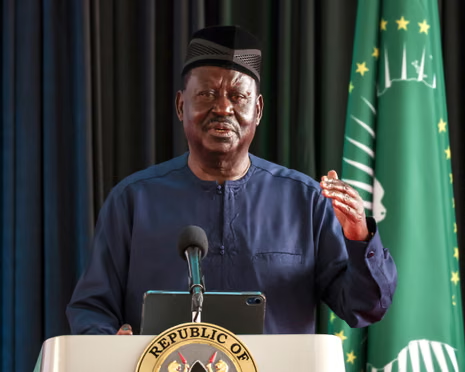SADC: Will Rajoelina Maintain Mnangagwa’s Success Momentum?

By Staff Reporter
Antananarivo, Madagascar—Madagascar’s President Andry Rajoelina has taken over the chairmanship of the Southern African Development Community (SADC) from Zimbabwe’s Emmerson Mnangagwa at the 45th Heads of State and Government Summit held in Antananarivo on 17–18 August 2025.
The transition raises one big question: can Rajoelina sustain the unprecedented momentum Mnangagwa injected into the largely ceremonial role?
Mnangagwa’s Unusual Tenure
When Mnangagwa assumed the SADC chairmanship at the Harare summit in August 2024, the post was expected to be routine. Instead, he turned it into a showcase of both regional activism and domestic political branding.
Zimbabweans were bombarded with jingles celebrating his ascendance, while quiz shows on SADC aired on state television and radio. ZANU-PF politicians even invoked the SADC chairmanship at funerals and church gatherings.
Yet beyond the theatrics, Mnangagwa delivered.
His one-year tenure pushed regional integration, industrialisation, food security, and peacebuilding higher up the SADC agenda.
He spearheaded:
- The push for a SADC Parliament, with Madagascar and Mauritius signing the amended treaty in Antananarivo, bringing signatories to 15.
- Commissioning of a Regional Logistics Depot in Botswana to bolster humanitarian and conflict-response capacity.
- Ratification of the SADC Regional Development Fund, aimed at mobilising alternative financing from states, donors and the private sector.
- Strong advocacy for annual SADC Industrialisation Weeks to boost trade, investment, and cooperation.
Most strikingly, Mnangagwa’s pragmatism on peace and security won regional and international recognition.
Initially inheriting a faltering SADC combat mission in eastern Democratic Republic of Congo (DRC), he steered the bloc toward African-led diplomacy, merging the Nairobi and Luanda peace processes with African Union backing.
The March 2025 decision to terminate SAMIDRC combat operations and join forces with the East African Community marked a turning point.
Even Rwanda’s Foreign Affairs Minister Olivier Nduhungirehe praised Mnangagwa’s “exceptional leadership.”
The Legacy He Leaves
By the end of his term, Mnangagwa could credibly claim to have:
- Elevated SADC visibility at home and abroad.
- Delivered tangible institutional milestones like the parliament treaty signing.
- Projected himself as a regional statesman advocating “African solutions to African problems.”
It was, as Zimbabwean MP Webster Shamu put it, “about action, not words.”
Rajoelina’s Challenge
Rajoelina inherits both opportunity and expectation.
The young Malagasy leader, no stranger to political theatre himself, must now prove whether he can carry forward:
- The peace momentum in eastern DRC, where a panel of five former African heads of state has been appointed to mediate.
- The integration drive, ensuring SADC Parliament and the Regional Development Fund move from treaties to real institutions.
- The economic agenda, especially infrastructure corridors and one-stop border posts that Mnangagwa championed.
Unlike Mnangagwa, who revelled in the spotlight, Rajoelina may need to balance his domestic political fragility with regional leadership.
Madagascar’s own governance challenges risk diluting its capacity to command the bloc with similar vigour.
The Big Question
As Mnangagwa exited with a spring in his step, SADC insiders acknowledged his tenure was “unprecedented.” Rajoelina steps into large shoes at a critical moment for the region.
Will he merely manage the post—or will he match Mnangagwa’s activist streak, ensuring SADC retains its current momentum on peace, integration, and development?
That, analysts say, will determine whether the Antananarivo summit is remembered as a transition or a turning point.
-AfricaBrief










